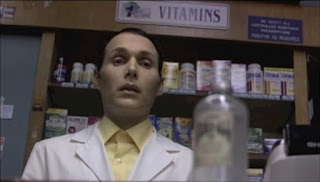Polish Cinema: Korczak (Andrzej Wajda, 1990, Poland/UK/Germany)
Korczak (1990) is one of the most acclaimed films from the latter stage of Andrzej Wajda’s career. This is for good reason. The film, with its stark black and white depiction of ghetto life in occupied Poland, can be viewed as a direct influence on Spielberg’s Schindler’s List. Spielberg himself said that Korczak was "one of the most important European pictures about the Holocaust."
The film - after providing a brief introduction of Janusz Korczak and his orphanage - begins at the outset of the German occupation of Poland. While this is understandable, the film does a bit of disservice to viewers outside of Poland who might not be familiar with Korczak as an author and pedagogue. The script, written by Agnieszka Holland, does inject references to Korczak’s books, as well as his influence on children’s education. The film is at its best when it shows him interacting with the students, using unorthodox methods which empowered them and gave them confidence.
Wojciech Pszoniak brings great pathos and intensity to his role as Korczak. While the film starts and ends strong, there is a bit of a lull during the midsection where the pacing falters. Subplots are introduced, including a new child at the orphanage, a romance between an orphan and a girl outside the ghetto, and tensions with the Judenrat. The film’s finale does feel inevitable, though Wajda surprises us with an incredibly beautiful scene.
Wajda brings along regular collaborator, composer Wojciech Kilar, for the film, but disappointingly uses him only a handful of times. Better used is cinematographer Robby Muller, who worked with Wajda for the first and only time on this film. He brings with him his rich black and white style, developed in the films of Jim Jarmusch and Wim Wenders. While Korczak does leave something to be desired, it is a stronger outing from Wajda.
7/10



Comments
Post a Comment